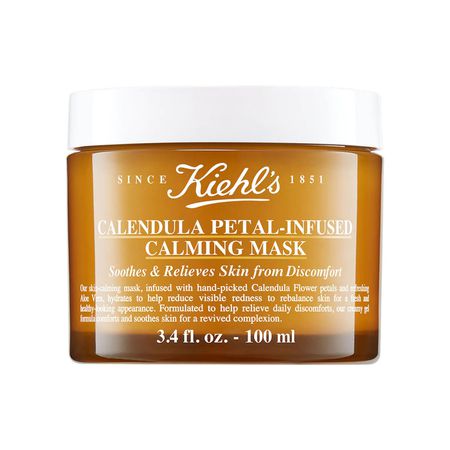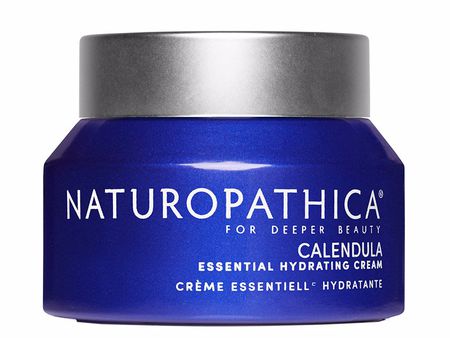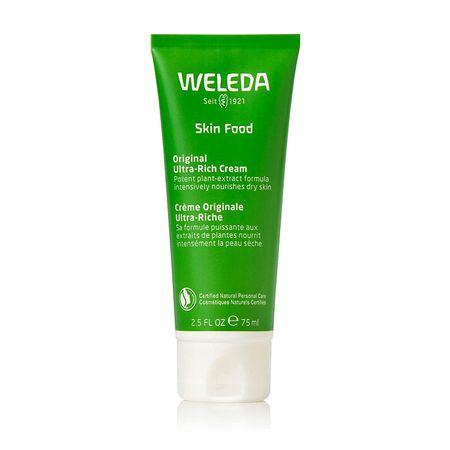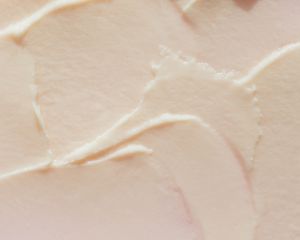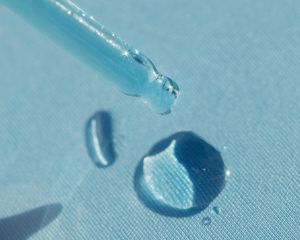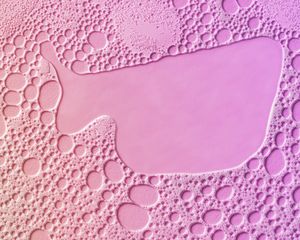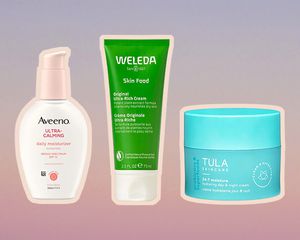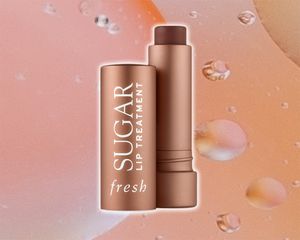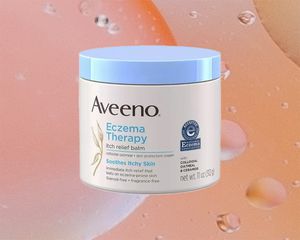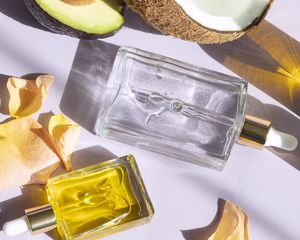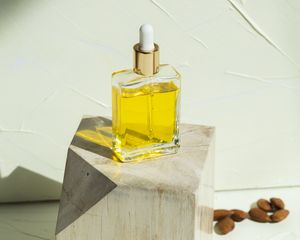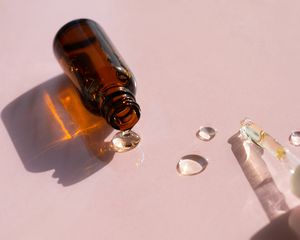
Stocksy / Design by Cristina Cianci
In This Article
Are you trying to quell sensitive, inflamed skin? Perhaps you're experiencing redness after a laser treatment or a hormonal acne flare-up? If so, we have we got the ingredient for you: Calendula is a multitasker being added to product formulations that are designed to give your skin a bit of TLC and nourishment.
Below, we've got all the details on this soothing ingredient from three board-certified dermatologists: Dr. Snehal Amin and Dr. Marisa Garshick from MDCS Dermatology in New York and Dr. Suzanne Friedler from Advanced Dermatology, PC. Read on to learn more about calendula.
Calendula
Type of Ingredient: Anti-inflammatory
Main Benefits: Soothes and calms skin, can potentially help speed up wound healing
Who Should Use It: All skin types, but those who have redness, acne, or sensitive skin might see more benefit from using it
How often can you use it: As long as you don't have a reaction to products with this ingredient, it can be used daily, advises Friedler.
Works well with: Other anti-inflammatory ingredients like aloe, says Friedler
Don’t use with: No known ingredients that it shouldn't be used with
Meet the Expert
- Dr. Snehal Amin, M.D., is a board-certified dermatologist and co-founder and surgical director of MDCS Dermatology in New York City.
- Dr. Suzanne Friedler, M.D., is a board-certified dermatologist with Advanced Dermatology PC.
- Dr. Marisa Garshick, M.D., is a board-certified dermatologist at MDCS Dermatology in New York City.
What is Calendula?
Calendula is a flower that belongs in the marigold family that's been used for centuries. "Calendula is a plant/flower that's native to northern Mediterranean countries," explains Friedler. "It’s been used since the 12th century for medicinal purposes."
"They are very bright and mildly fragrant and have been used by early Romans and Christians as 'Mary’s Gold' and in Ayurvedic and Unani systems of alternative medicine," adds Amin.
Benefits of Calendula for Skin
While there are not many scientific studies about the benefits of calendula for skin, there are a lot of anecdotal and potential benefits, including:
- Has anti-bacterial and anti-fungal properties: "Calendula oil has antifungal, anti-inflammatory, and antibacterial properties that might make it useful in healing wounds, soothing eczema, and relieving diaper rash," says Amin. "The strongest compound in the flower is likely a triterpenoid called faradol that has a significant anti-inflammatory effect similar to the medicine indomethacin, a non-steroidal, anti-inflammatory drug."
- Can heal wounds: There have been studies that show calendula can speed up wound healing in animals. Garshick points out that, in another study, calendula was used to treat c-section scars with great success.
- Can potentially increase collagen production: There are also studies that show calendula can potentially increase collagen production, but it hasn't been widely studied extensively in humans, notes Friedler.
- Improve radiation dermatitis: Friedler also notes that calendula can potentially help heal the skin of people who are undergoing radiation.
- Hydrating: Due to its natural oils, Friedler says that calendula can be hydrating on the skin. "It can help to moisturize the skin as calendula oil is rich in fatty acids that help to nourish the skin," adds Garshick.
- Can protect skin from damaging free radicals: As an antioxidant ingredient, calendula can neutralize free radicals, thanks to its high flavonoid content, Friedler explains. As a result, calendula can help decrease dullness, fine lines, and wrinkles.
Side Effects of Calendula
Calendula is a great option for all skin types, but as always, if you're concerned about any potential breakouts or adverse side effects, it's a great idea to do a patch test before using any product.
Both Garshick and Friedler note that there is a chance of allergic contact dermatitis to calendula if you have an allergy to ragweed, daisies, and chrysanthemums. If you're allergic to these plants (or any in the Asteraceae family) you might want to do a patch test to make sure that calendula is safe for you. Amin and Garshick also note that people who are pregnant, trying to conceive, or currently breastfeeding should avoid using this ingredient.
How to Use It
According to Garshick, "Calendula is often used in skincare as an oil which is extracted and can be applied as an oil, serum, cream, lotions, and more." So, it's really up to you to determine how you'd like to use it in your skincare routine. It is safe to use up to two times a day, so you can use it in both your day and nighttime routine.
If you're a DIY kind of person, you can make your own body butter, oil, or even lip balm. But calendula shouldn't be applied to the skin without a carrier oil or butter to avoid any potential irritation. "Calendula can be mixed with substances such as beeswax, petrolatum, shea butter, or jojoba oil," Amin says. "Most people add another fragrant oil to the mix because calendula itself is not very aromatic. The beeswax preparation is great to use as a lip balm. Always use less than a 1:10 dilution for these types of DIYs."
The Best Products With Calendula
Kiehl's Calendula Petal-Infused Calming Mask with Aloe Vera
Amin recommends this soothing face mask. It's lightweight and has a noticeably soothing effect on the skin, thanks to calendula, aloe, and chamomile. To use, apply after cleansing and leave on for 15 minutes, then rinse with lukewarm water.
Naturopathica Calendula Essential Hydrating Cream
This rich cream comes recommended by Friedler. It's formulated with calendula, aloe vera, borage seed oil, and Rosa Damascena essential oil and is ideal for those with irritated, dry, and sensitive skin. Use as the final step in your skincare routine at night, or right before SPF during the day.
Weleda Skin Food Original Ultra-Rich Cream
Remember the time every single it-girl raved about the Weleda Skin Food Ultra Rich Cream? Well, it's for good reason. It's made with a blend of soothing ingredients—calendula, pansy, chamomile, and beeswax—to nourish and soothe ultra dry skin. Be warned, it is quite thick, so a little goes a very long way. It's great for hands too!


